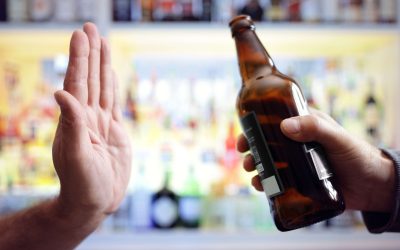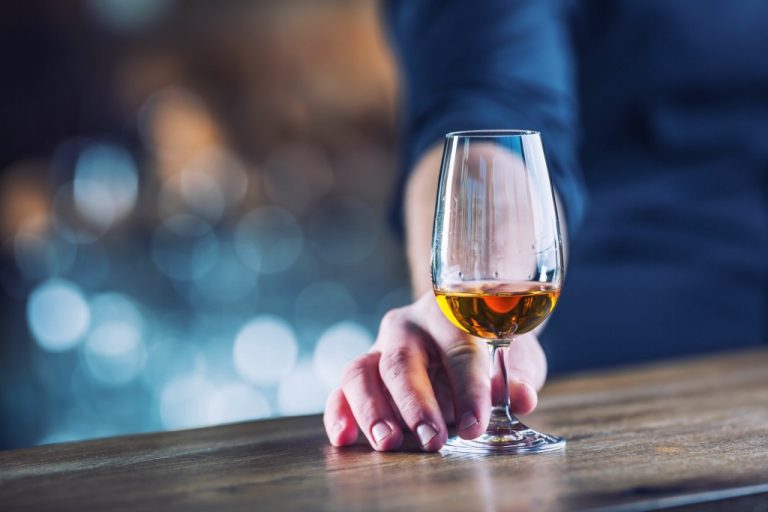Without proper microdosing, anxiety patients may accidentally do more harm than good. Some legal, medical marijuana states use high-CBD strains over their hemp-derived counterparts. Even more disturbing is the presence of substances not listed on the label. Those can include dangerous heavy metals and significant doses of THC (tetrahydrocannabinol) Alcoholics Anonymous — the compound in marijuana that induces a high.
select product type
It’s the reason why cannabis is considered to be a drug and is illegal in many places. Some claim that pure CBD isolates are not as effective as the full-spectrum CBD oils, but it has its benefits such as being safe for kids or those who really want to avoid any other cannabinoids such as THC. If you encounter CBD that says that it is of full-spectrum, that means that all the cannabinoids present in the cannabis plant can be found in the oil.
Can CBD Help Counter Addiction?
Cannabidiol (CBD) has gained immense popularity as a wellness supplement in recent years. Extracted from the Cannabis sativa plant, CBD is often used in products like oils, gummies, vapes, and topical preparations to support a range of health needs. Hemp-based CBD products are only federally legal in most of the United States. Historically, hemp, marijuana, and all other cannabis varieties fell under Section I drugs of the 1970 Federal Controlled Substances Act(32). Further, low-quality CBD oil may cause some people to experience the psychoactive effects of cannabis use.
Is CBD Oil Legal?
Doses in most clinical trials have ranged from 100 to 800 milligrams a day. The main risk of using CBD is that most CBD products are unregulated. Many products that claim to be CBD also contain other cannabinoids, such as THC. Only one CBD product (Epidiolex, a medication that treats seizures) has been approved by the FDA. More than 250 clinical trials on CBD benefits have been completed or are recruiting participants.
- I have so many good things to say about CBD, I stopped taking pain killers which were addictive, just to move to CBD, same results no addiction.
- However, it is essential to acknowledge the limitations of the existing research.
- As reviewed below, published reports focused mainly on evaluating the effects of CBD on the reinforcing and motivational actions of amphetamine, methamphetamine, and cocaine in different animal models (Table 4).
- There is some evidence that the non-psychoactive compounds in cannabis, such as CBD, could provide a new treatment for chronic pain.
- But CBD is not psychoactive, so it doesn’t give a feeling of being «high.»
Fuel groundbreaking medical research!
Anyone considering or currently using CBD should speak with a doctor about the safety and possible risks based on their individual circumstances. A 2023 review notes that CBD use in older adults has generally been safe, but that it is also important to consider each person’s individual risks of heart problems and other conditions before recommending CBD. In June 2018, the FDA approved the prescription use of Epidiolex, a purified form of CBD oil, for treating two types of epilepsy. https://ecosoberhouse.com/ A 2018 study found that CBD helped reduce cravings during withdrawal from tobacco because of its relaxing effect. A truly CBD-only product should not trigger a positive drug test for marijuana.
Recognizing Myths About CBD Addiction Potential
While the cbd addictive endocannabinoid system can usually function by itself, it can sometimes become imbalanced. Consuming CBD products you’re able to alleviate the symptoms you might be feeling. Main findings from clinical and animal studies aimed to evaluate the therapeutic potential of CBD for the treatment of opioid use disorder.
Voluntary ethanol consumption (VEC) and oral ethanol SA procedures were employed. First, VEC was evaluated in a two-bottle choice paradigm in which mice were repeatedly administered with different doses of CBD (30, 60 and 120 mg/kg, i.p.). Ethanol consumption and preference were significantly reduced by CBD in a dose-dependent manner. Second, oral ethanol SA was carried out in operant skinner boxes to evaluate the effects of a single administration of CBD in a microparticle formulation providing a constant release (30 mg/kg/day, s.c.). Third, the effects of CBD on alcohol relapse were also analyzed in the oral ethanol SA paradigm with some modifications.

The achievement of promising results lately has motivated further research to evaluate the potential utility of CBD in the management of OUD. It can be hard to differentiate between the feelings that various drugs provide when they’re taken together, so users could end up ingesting more CBD along with other drugs, which can cause future health problems. There’s no telling when CBD will have adverse effects, especially when taken with alcohol, other drugs, or prescription drugs. There’s also not enough research on the topic to determine how CBD affects the mind and body.

Is CBD safe for daily use?
CBD’s legality still varies from state to state, so make sure you protect yourself and know the laws where you live. Familiarize yourself with the local laws and regulations regarding CBD oil. While CBD extracted from hemp with low THC content is legal in many places, THC limits and regulations can vary. Ensure that the CBD oil complies with the legal requirements in your jurisdiction. ‘, it is important that you first gain a better understanding of what cannabidiol is, its different types, uses, potency, and more.
Due to THC being a compound of the cannabis plant, cannabis is illegal in many places. While it has many medical uses, it remains illegal and is considered a dangerous drug by a few states and countries. Glutamate (Glu) is the main excitatory neurotransmitter of the central nervous system. Drugs of abuse trigger critical adaptive changes in the reward system by inducing widespread modifications of glutamatergic synapses.

Anxiety and stress weighing heavily at night? A new blanket might help
The agency is actively exploring regulatory pathways for CBD and has issued warning letters to companies making unsubstantiated health claims about their CBD products. The federal government has not yet approved the use of CBD in any dietary supplement or food. Federal law requires that hemp-derived CBD products contain less than 0.3% levels of THC. It’s amazing that with the rise in CBD’s popularity over the past few years, that there are still so many questions around its safety and potential for addiction.
